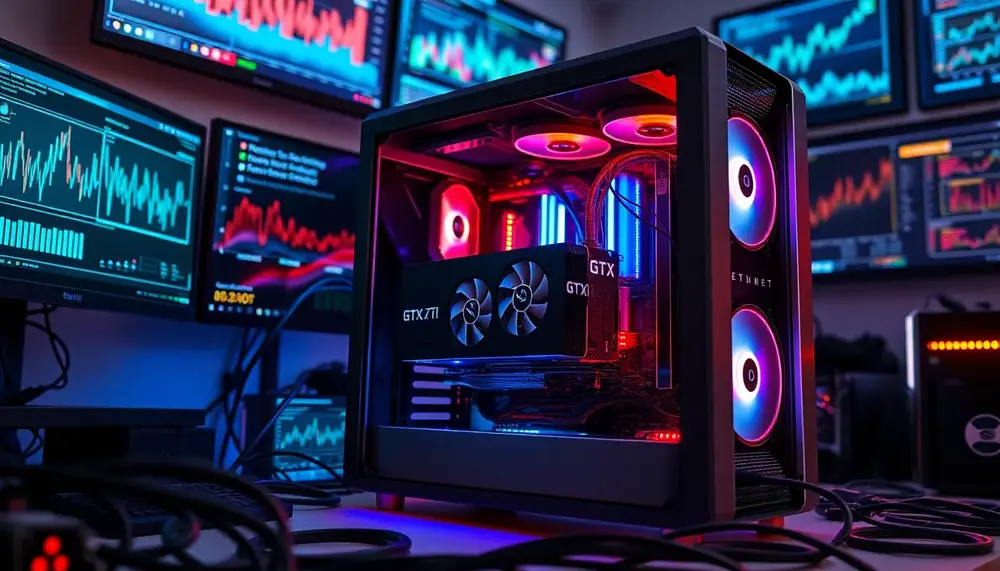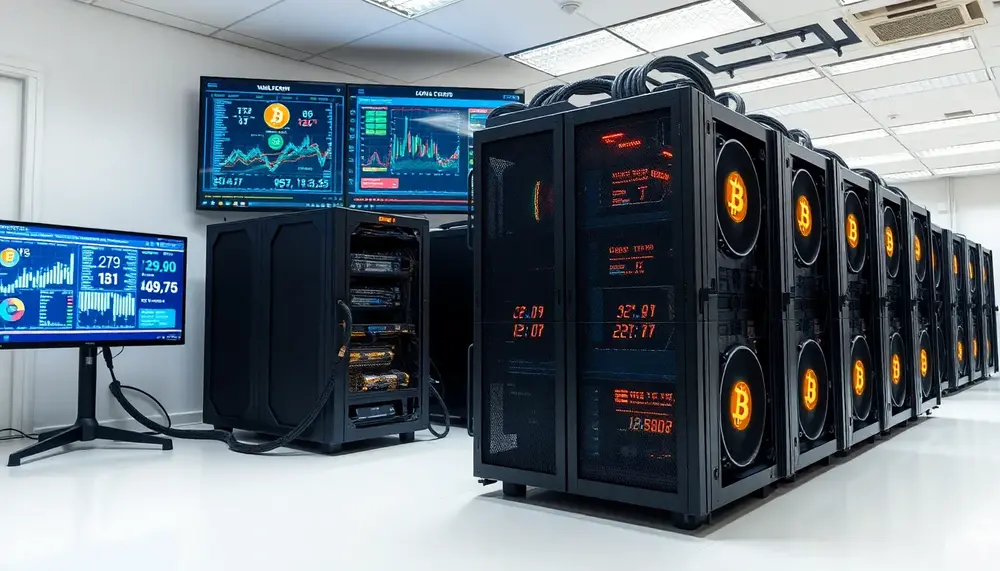Equihash
Equihash
Understanding Equihash in Bitcoin Mining
As you venture deeper into the world of Bitcoin mining, you will likely come across various complex terms. One of these is Equihash. Originally introduced by Alex Biryukov and Dmitry Khovratovich in 2016, Equihash is the cryptographic algorithm behind Bitcoin mining. But what exactly is Equihash and why is it essential in Bitcoin mining? Let's find out!
Defining Equihash
At its simplest, Equihash is a proof-of-work algorithm. This memory-hard algorithm is a vital component in the creation of new blocks in the Bitcoin blockchain. Its uniqueness lies in its resistance to Application-Specific Integrated Circuit (ASIC) —highly specialized hardware used for mining. Thus, it prevents any potential monopoly in mining activities, ensuring that Bitcoin remains decentralized.
The Role of Equihash in Bitcoin Mining
The Equihash algorithm performs a crucial role in the Bitcoin mining process. It keeps the mining activity fair and secure by preventing a technique called double spending. The latter is a fraudulent tactic of spending the same amount twice.
In Bitcoin mining, the Equihash algorithm requires miners to solve complex mathematical problems. The complexity of these problems ensures that block creation remains a competitive process. By solving these tasks, miners contribute to the security and robustness of the Bitcoin network.
Equihash and Mining Efficiency
One of the benefits of Equihash is that it allows for efficient mining. Due to its memory-hardness, standard Personal Computers (PCs) can perform the mining process relatively effectively, without the need for expensive, specialized hardware. This features democratises Bitcoin mining, allowing virtually anyone with a computer and internet connection to participate.
Conclusion: Equihash as a Game Changer
Understanding Equihash gives us insights into the functioning of Bitcoin and its philosophy of inclusivity and fairness. Equihash is a game-changer and a key pillar in the world of Bitcoin mining. It makes the mining process competitive, secure, and accessible to all, echoing Bitcoin's vision of decentralization and openness.
Blog Posts with the term: Equihash

This step-by-step guide provides essential information for beginners and experienced miners on how to mine Flux, covering necessary hardware, software configurations, and the setup of a Flux wallet. It explains what Flux is, its benefits like profitability and decentralization, and...

Flux Node Mining allows participants to earn rewards by contributing decentralized infrastructure to the Flux network, with nodes categorized into Cumulus, Nimbus, and Stratus based on hardware requirements and collateral. This guide provides detailed steps for setting up a node,...

The GTX 750 Ti is a cost-effective, efficient option for beginner cryptocurrency miners due to its Maxwell architecture and adaptability across various algorithms, though it requires careful optimization of power settings and regular updates to drivers and mining software for...

The article provides a comprehensive guide to building a successful crypto mining empire, covering the basics of crypto mining, essential hardware choices, and strategies for selecting profitable cryptocurrencies. It emphasizes understanding key components like blockchain, mining hardware (CPU, GPU, ASIC),...

The article provides a comprehensive guide to ZEC crypto mining, covering the basics of Zcash (ZEC) mining, necessary equipment, setup instructions for a mining rig, and tips for optimizing operations. It highlights the benefits of choosing ZEC due to its...

Komodo Coin mining involves using computer hardware to solve mathematical problems, maintaining the blockchain and earning rewards. Komodo uses Delayed Proof of Work (dPoW) for enhanced security by notarizing transactions on the Bitcoin blockchain; setting up a mining rig requires...

This article explores how to turn a gaming laptop into a crypto mining machine, covering the basics of mining, potential profitability, and necessary equipment. It emphasizes choosing suitable cryptocurrencies like Monero or Dogecoin for effective laptop mining while considering factors...

Horizen is a blockchain platform that uses sidechain technology for privacy and scalability, with mining involving solving complex problems via the Equihash algorithm to earn $ZEN. The article provides detailed steps on setting up hardware, installing software, and joining mining...

Horizen mining pools offer a collaborative approach to cryptocurrency mining, providing stability and predictable income by sharing rewards among miners who solve complex equations using the Equihash algorithm. Selecting an optimal pool involves considering factors like fees, payout systems, reliability,...

Joining a Komodo mining pool can increase your chances of earning rewards by combining efforts with other miners, offering benefits like increased reward frequency, reduced variability in earnings, and lower costs. To start mining Komodo efficiently, you need the right...

The article provides an in-depth overview of the Flux mining algorithm, known as ZelHash, which is a modified version of Equihash designed to be ASIC-resistant and promote decentralization by making mining accessible to those using consumer-grade hardware. It explains how...

The article provides a comprehensive guide on optimizing the NVIDIA V100 GPU for cryptocurrency mining, emphasizing hashrate optimization to enhance efficiency and profitability across various algorithms like Ethash, KawPow, Equihash, and FiroPow. It covers essential strategies such as updating drivers,...

Crypto mining in 2024 is characterized by rapid technological advancements, increased competition, and a focus on sustainability; new technologies like next-generation ASIC miners, quantum computing, advanced cooling solutions, AI integration, and decentralized mining pools are reshaping the industry. Profitability depends...

Zen crypto mining involves using specialized hardware like ASIC miners to mine ZEN coins on the Horizen blockchain, which emphasizes privacy and decentralization. To succeed in Zen mining, it's crucial to join a mining pool, configure settings correctly, secure your...

